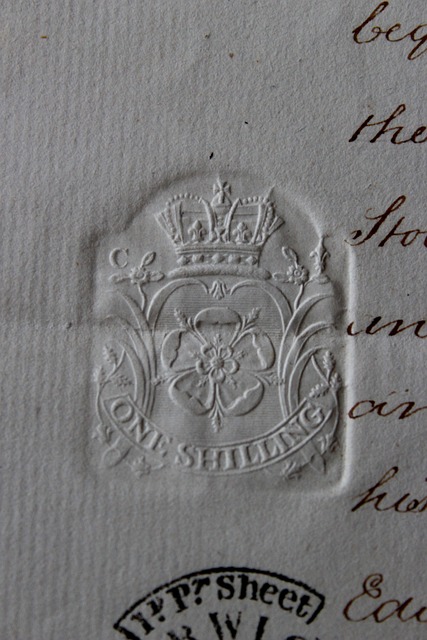In the UK, notarised translation services are essential for ensuring that legal and official documents are accurately translated and hold the same weight as their original versions. These services go beyond standard translations by involving professional, certified translators who are often members of reputable institutions like the Institute of Translation & Interpreting (ITI) or the Chartered Institute of Linguists (CIOL). A notary public then verifies and stamps these translations, attesting to their authenticity. This process is crucial for legal matters, immigration, international business transactions, and any situation where documents must be presented to government bodies, courts, or other official entities both within the UK and internationally. It ensures that translated content adheres to UK regulations and carries the necessary legal recognition, making it a trustworthy and reliable resource for anyone requiring legally binding translations in a multilingual setting.
Navigating the legal arena, particularly within the UK, often necessitates precise and notarised translations. This article delves into the critical role of notarised translation services in the legal sector, guiding readers through each step from understanding their necessity to selecting a reliable provider. We explore the intricacies involved in certifying translations, the types of documents that need notarisation for legal use, and how to identify cost-effective solutions across the UK. With a focus on “notarised translation services UK,” we aim to shed light on the importance of choosing translators with legal expertise for the highest accuracy, supported by case studies that underscore their pivotal role in legal matters.
- Understanding the Necessity of Notarised Translations in Legal Contexts within the UK
- The Role of Certified Translators and Legal Experts in Ensuring Accuracy
- Navigating the Types of Documents That Require Notarisation for Legal Use
- The Process of Notarising Translations: Steps and Requirements in the UK
- Comparing Cost-Effective Notarised Translation Services Across the UK
- Selecting a Reliable and Accredited Notarised Translation Service Provider
- The Importance of Choosing Translators with Legal Expertise for Precision
- Case Studies: How Notarised Translations Have Facilitated Legal Matters in the UK
Understanding the Necessity of Notarised Translations in Legal Contexts within the UK

Navigating legal matters often necessitates precise and certified documentation, where every detail must be accurately conveyed to avoid misunderstandings or legal complications. In the UK, where legal proceedings are governed by specific statutes and regulations, the importance of notarised translations cannot be overstated. These translations ensure that foreign language documents meet the legal requirements for use within the UK’s justice system and other official contexts. Notarised translation services UK play a pivotal role in this process, as they provide authoritative verification that a translated document reflects the original content truthfully and precisely. This certification is typically afforded by a notary public who has certified translators on their roster, vouching for the accuracy of the translation and its equivalence to the source text. The notary’s stamp of authentication lends credibility to documents that are often used in immigration procedures, international adoptions, real estate transactions, and legal disputes. By engaging with professional notarised translation services UK, individuals and organisations can navigate legal waters with confidence, knowing their translated documents stand as reliable and valid representations of the original text. This is particularly crucial in a multicultural nation like the UK, where clear communication across language barriers is essential for justice to be equally served to all parties involved.
The Role of Certified Translators and Legal Experts in Ensuring Accuracy

When legal documents require translation, accuracy and authenticity are paramount. In the UK, notarised translation services play a crucial role in bridging language barriers while upholding the integrity of legal communications. Certified translators, who are proficient in both the source and target languages, transform legal texts into their equivalent counterparts with precision. These professionals undergo rigorous training and adhere to stringent standards to ensure that every translation they produce is not only semantically accurate but also reflects the exact intent of the original document. Their expertise encompasses a deep understanding of legal terminology, ensuring that nuances and complexities are conveyed correctly, thereby avoiding any legal discrepancies or misunderstandings.
In conjunction with certified translators, legal experts are often engaged to validate the translations. These experts, who are well-versed in legal protocols and international law, review the translated documents for legal accuracy and compliance with UK regulations. They provide assurance that the content adheres to legal standards and is appropriate for use in a judicial or official context. This collaboration between certified translators and legal experts is essential for notarised translation services UK to deliver trustworthy and authentic translations. The result is a document that stands as a true and accurate representation of its original, legally sound and ready for use across the UK’s diverse legal landscape.
Navigating the Types of Documents That Require Notarisation for Legal Use

When legal documents require foreign language content to be understood by all parties involved, notarised translation services in the UK become indispensable. The process of notarisation verifies the identity of the translator and ensures the accuracy of the translated text, making it legally binding. This is crucial for a variety of legal documents, including but not limited to contracts, court documents, corporate records, and official certificates. Each of these documents carries significant weight in legal proceedings and must be presented with precision to maintain their legal integrity. For instance, a contract written in a language foreign to the parties cannot be enforced without an authorised translation. Similarly, immigration forms or educational credentials that are not in English must be translated and notarised to be accepted by UK authorities. The notarised translation services UK provides adhere to strict legal standards, ensuring that translations are exact and legally acceptable. This meticulous process is facilitated by certified translators with expertise in both the source and target languages, guaranteeing that translations are not only accurate but also convey the original intent effectively. For individuals and businesses alike, this level of assurance is critical when navigating international legal matters.
The Process of Notarising Translations: Steps and Requirements in the UK

In the United Kingdom, legal documents often require precise and certified translations to be acknowledged in English or other requested languages. This is where notarised translation services UK play a pivotal role. The process of notarising translations involves several key steps and stringent requirements designed to ensure the accuracy and authenticity of the translated content. To initiate the process, the original document must be presented to a certified translator who specialises in legal translations. The translator will translate the text accurately, using their expertise to convey the exact meaning without any alterations or omissions. Once the translation is complete, both the original and translated documents are submitted to a notary public.
The notary public, a legal professional authorised to administer oaths and certify documents, will verify the translator’s qualifications and review the translation for compliance with the necessary standards. The notary will then affix their official seal or stamp to the translated document, declaring under oath that the translation is a true and faithful representation of the original text. This notarised translation can now be used for legal purposes within the UK or abroad. It is imperative that individuals seeking these services choose translators who are members of professional bodies such as the Institute of Translation and Interpreting (ITI) or the Chartered Institute of Linguists (CIOL), and notaries registered with the Faculty Office of the appropriate jurisdiction, ensuring the highest level of accuracy and legal compliance.
Comparing Cost-Effective Notarised Translation Services Across the UK

When seeking out notarised translation services in the UK, individuals and businesses alike are often faced with the task of comparing providers to find the most cost-effective solution that meets their legal needs. The process of notarising translations ensures the translated document carries the same weight as its original form, which is critical for a variety of applications from immigration to international business transactions. With the proliferation of multilingual communication in the UK’s diverse society, the demand for such services has risen sharply. Prospective clients must consider not only the cost but also the expertise and reliability of the translation service provider. In the UK, a competitive market exists for notarised translation services, with prices and quality varying significantly from one provider to another. It is advisable to look beyond mere costs; the credibility and precision of the translation are paramount. Reputable providers often have a network of professional translators specialising in legal jargon, ensuring that the translated document is an accurate representation of the original content. Additionally, these services offer convenience through a combination of online and in-person options, catering to the varying needs of clients across different regions of the UK. When comparing notarised translation services UK-wide, it’s crucial to verify the credentials of the translators and notaries, as well as their proficiency with the specific language pair required for your documents. This due diligence ensures that you receive a certified translation that is legally binding and accurately conveys the intended meaning.
Selecting a Reliable and Accredited Notarised Translation Service Provider

When the legal landscape necessitates the translation of documents, opting for a reliable and accredited notarised translation service provider in the UK is paramount. The accuracy and legitimacy of notarised translations are critical, as they are often required to stand up in courts of law or for official transactions. A trusted provider will hold professional indemnity insurance, ensuring that your sensitive information remains protected throughout the translation process. Moreover, such a service should be equipped with certified translators who are proficient not only in the source and target languages but also well-versed in legal terminology specific to the UK’s legal system. This expertise guarantees that translations are both precise and recognisable by legal authorities.
In the UK, the credibility of a translation service is often validated through affiliation with professional bodies such as the Institute of Translation & Interpreting (ITI) or the Chartered Institute of Linguists (CIOL). These associations demand high standards of quality and ethics from their members. Additionally, a reputable notarised translation service provider will have an established network of legal professionals and notaries who can notarise the translations, adding an additional layer of authenticity and legality to the document. When searching for such services in the UK, it is advisable to look for providers with a proven track record and positive client testimonials, ensuring that your translated documents will be both accurate and legally sound.
The Importance of Choosing Translators with Legal Expertise for Precision

When legal matters span across languages, precision becomes paramount. In the context of international legal dealings, documents must be accurately represented in the target language to hold the same legal weight as their original counterparts. This is where notarised translation services UK play a crucial role. Opting for translators with specialized legal expertise ensures that the translated content reflects the nuances and specificities inherent in legal text. These professionals are adept at navigating complex legal terminology, which often includes intricate concepts like statutes, case law, and regulations. Their deep understanding of both language and law allows them to convey meaning accurately, without any ambiguity that could lead to legal complications or misinterpretation. Moreover, notarised translations are legally endorsed, providing an additional layer of authenticity and assurance that the translation is a true and faithful representation of the original document. For those conducting business, seeking legal counsel, or involved in litigation across borders within the UK, choosing translators with legal expertise is not just a preference—it’s an essential safeguard for the integrity and validity of all legal proceedings and documents.
Case Studies: How Notarised Translations Have Facilitated Legal Matters in the UK

In conclusion, navigating the legal landscape within the UK necessitates precise and authoritative documentation, especially when it involves translations. The demand for notarised translation services UK is a testament to the multifaceted nature of legal proceedings that require accurate linguistic representation. By understanding the critical role of certified translators and legal experts, individuals and businesses can ensure the integrity of their international communications. When selecting a provider of notarised translation services UK, it is crucial to consider their accreditation, expertise in legal contexts, and competitive pricing. The meticulous process of notarising translations, as outlined in this article, guarantees the authenticity of documents, paving the way for seamless legal transactions both domestically and abroad. Case studies illustrate the profound impact these services have had on various legal matters within the UK, underscoring their indispensable nature. In essence, the provision of reliable notarised translation services UK is a cornerstone for legal clarity and compliance in an increasingly globalized world.
